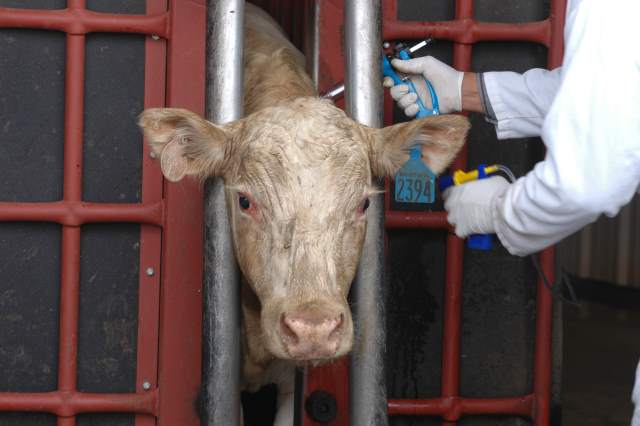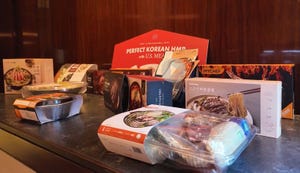Have we lost the battle on animal welfare?
February 11, 2015

The title of this blog—Have we lost the battle on animal welfare?—is a bit provocative and a bit presumptuous. That’s because it presumes there’s a battle to begin with.
Dave Daley, California rancher, animal science professor and interim dean of the college of agriculture at California State University-Chico, doesn’t think so. At least he doesn’t think so if you remove the Humane Society of the United States (HSUS), People for the Ethical Treatment of Animals ( PETA) and other very radical animal rights activists from the equation. But if we’re focusing on the big middle of the bell curve, the people who are your consumers, Daly isn’t sure we’re in a battle there.
“But I do know there’s a changing social ethic about animals in this country,” he told cattle producers at the Cattlemen’s College that preceded the Cattle Industry Convention last week in in San Antonio. And how beef producers, both individually and collectively, address that changing social ethic will largely determine who decides how you will produce beef in the future.
Daley challenged the beef producers in the audience to step back from the window through which they view the world and understand how their view might be different from someone who views the world through a different pane. That’s hard to do, because how you view the world is the sum of your experiences and learning and perceptions. Daley still runs his family’s ranch that dates back to 1850. “The things I grew up doing and take for granted, that seem very real to me, that I cannot perceive that anybody would think are cruel to animals, are not perceived that way by others,” he says.
And if we, individual and collectively, intend to continue doing what we do, we need to press our noses to the glass that our consumers view the world through. Or at least try.
The reason that’s vital, indeed even essential, is because our consumers want to know they can trust us. That’s a part of the changing social ethic in America, especially among the millennial generation, about whom we spend a lot of time discussing and not near enough time understanding.
“This is really about trust and like,” Daley told the audience. “What we have to do, particularly the small group of people that we are, is build trust with people so they’re comfortable with what we’re doing. Then they’re going to believe your science, because that’s really what it comes down to.”
So are we in a battle? Maybe with the HSUS-PETA crowd we are. But Daley, who has had this opportunity, says the idea of engaging the radicals in a verbal confrontation is risky. “I don’t think it makes a lot of sense to do that.”
Engaging our consumers who view the world much differently than we do, however, makes all the sense in the world.
Doing so will be how we gain their trust enough so they believe us when we say we’re changing and adapting. “Look at how practices have changed over time with how we have naturally evolved, because we want to do things better,” Daley said. “Doesn’t every farmer and rancher want to do things better? That’s part of who we are.” We just don’t want somebody with an agenda telling us we have to.
In fact, when Daley looks at the world through his window, he says we aren’t doing badly at all when it comes to animal welfare. “So the end of the story is I don’t think we’ve necessarily lost the battle in animal welfare because I don’t think it’s a battle. I think it’s progressive change and improvement.”
But that change and improvement can’t happen in a vacuum. So Daley left the audience with two challenges. Here’s the first: “List in your head the things you could see happening on your operation that would be difficult to explain. Do not apologize for them, do not say they’re wrong. Just think about them. And think about how it will change.”
Here’s the second: “How many of you know a fully urban person who doesn’t agree with you and talk with them regularly?” And it’s important, Daley says, that you talk with that person, not at that person. In fact, truly communicating and understanding someone involves talking a lot less and listening a lot more.
Then, remove your nose from where it’s pressed firmly against the window through which you view the world. Don’t worry; you can wipe the smudge off later. “See if you can see where they’re coming from, and see if you can change and improve what you do.”
You might also like:
100 biggest seedstock producers in the U.S.
4 shots at explaining an unexplainable cattle market
Save some time! Bale grazing lets cows feed themselves
Breathtaking photos of winter on the ranch
Meet the largest bull seller in the U.S.
You May Also Like



